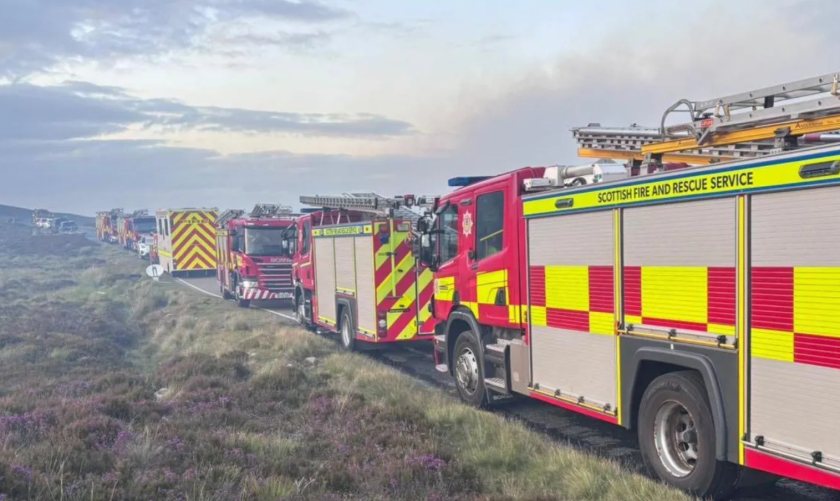
Ministers are facing renewed calls to strengthen Scotland’s wildfire response, following major blazes in Speyside and Morayshire that once again saw land managers and gamekeepers on the front line.
Although recent rainfall has helped ease the immediate threat after days of intense firefighting, serious concerns remain over smouldering hotspots—particularly in areas of deep peat—prompting continued monitoring by local land managers.
Scottish Land & Estates (SLE), which represents rural businesses across the country, is urging the Scottish government to take decisive action to improve preparedness and response capabilities.
Among its key recommendations is increased investment in the Scottish Fire and Rescue Service (SFRS), including the provision of all-terrain vehicles, fogging units and water bowsers to ensure crews are properly equipped for tackling wildfires.
SLE is also calling for an urgent and wider rollout of specialist training in wildfire suppression techniques, such as backburning and firebreak creation. While some training has commenced, the organisation argues that it must be expanded significantly.
A full review of Scotland’s aerial firefighting capability is also being urged. SLE is proposing the creation of a dedicated SFRS aerial command to allow for quicker helicopter mobilisation and more effective containment efforts.
Additionally, the organisation is advocating for government investment in wildfire danger rating assessments—tools seen as critical for improving risk awareness and informing future prevention strategies.
Ross Ewing, director of moorland at SLE, said the recent fires highlighted Scotland’s heavy reliance on private land managers during such emergencies.
“The Scottish Fire and Rescue Service played a vital role in this incident, particularly in command, control and coordination, but the reality is that the majority of the hands-on firefighting was undertaken by gamekeepers – using their own equipment, experience and local knowledge,” he said.
“Without that rapid response from the land management community, the situation could have been far worse – and concerns remain that flareups could yet occur.
“Their efforts were exceptional, but we cannot rely on goodwill and geography to deliver a credible wildfire response.”
He added that private investment in personnel and specialist equipment had prevented a far more serious outcome, but warned that systemic shortcomings had been exposed.
“Real weaknesses in our national resilience to wildfire have been laid bare in this incident,” Mr Ewing said. “It took until Monday for helicopters to be deployed, despite requests being made over the weekend. That simply isn’t good enough in a situation where every hour counts.
“We also know that SFRS teams do not yet have universal access to the equipment and training needed to respond effectively to these fast-moving incidents. Firefighters across Scotland should receive regular training in the use of fire to backburn and create firebreaks.
“The government must now show leadership and commit to a long-term strategy backed by meaningful investment.”
